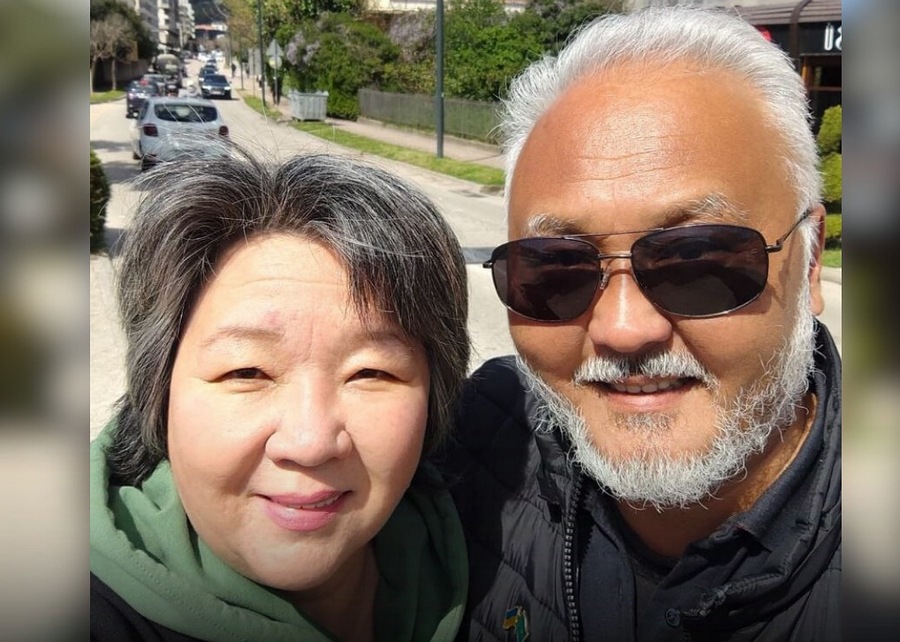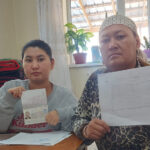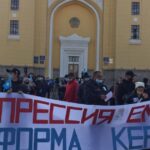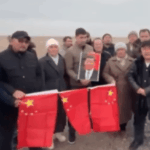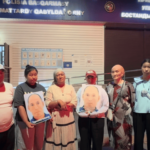Kazakhstani human rights activist Dinara Smailova (Dina Tansari), seeking asylum in Montenegro, was followed and forced to remain confined in her home for three days for her own safety.
Tomorrow, July 2, 2025, will mark the somber anniversary of the assassination of Kazakh journalist Aidos Sadykov. Exiled in Ukraine after fleeing Kazakhstan due to his human rights activism, Aidos was cowardly shot and killed in broad daylight. One year later, no serious investigation has been conducted, and no one has been arrested. Yet there is little doubt about the identity of the person who ordered the killing.
Like Aidos, Dina Tansari and her husband Almat left Kazakhstan for their safety. They now live in Montenegro, in the Balkans. But exile guarantees neither peace nor safety. Aidos’s assassination sadly proved that fleeing does not always mean protection.
Dinara Smailova, Kazakh women’s rights activist and founder of the #NeMolchiKZ foundation, has been living in exile in Montenegro with her husband for over 20 months. She applied for asylum after facing years of pressure and intimidation from Kazakh authorities, due to her work exposing violence against women.
Kazakhstan has requested her extradition, accusing her of fraud, spreading false information, and violating privacy. These charges are being challenged and are widely regarded by observers — including UN Special Rapporteurs — as politically motivated and directly linked to her activism. Her fate now lies in the hands of the High Court of Podgorica, which must decide on the extradition request.
On June 23, Dina Tansari was giving a talk at a discreet venue for refugees called “The Auditorium,” in Montenegro. Her husband Almat noticed a man acting suspiciously: wearing a cap and sunglasses indoors, pretending to read a book, and above all, having features resembling those of a Kazakh — a rare presence in such a place.
Almat tried to take a photo of the man, but he hid his face. Alarmed, Almat rushed to warn Dina, and with the help of a friend who was also present, they fled through the back of the building and ran home. From their balcony, Almat saw the same man observing them from outside. Shortly afterward, a drone appeared in front of their windows, forcing them to barricade themselves inside for three days.
The Montenegrin police have opened an investigation and questioned witnesses. Dina and Almat alerted the authorities to the troubling parallels with the murder of Kazakh journalist Aidos Sadykov, who was assassinated a year earlier after fleeing the authorities in his country.
It is now urgent that Montenegro officially grant refugee status to Dina Tansari, so that she can finally benefit from clear and unequivocal legal protection. Her commitment to human rights and to survivors of violence exposes her to serious and ongoing threats — including beyond Kazakhstan’s borders.
We also hope that the current investigation into these recent events will demonstrate that the pressure against her has not stopped with exile.
Kazakhstan appears determined to silence a dissident voice by any means necessary. In this context, we strongly hope that Montenegro, as a state governed by the rule of law, will firmly reject the extradition request submitted against her. Granting that request would amount to handing over a threatened activist to her persecutors.


